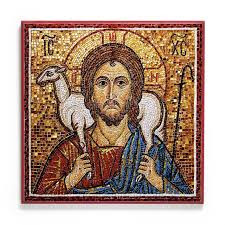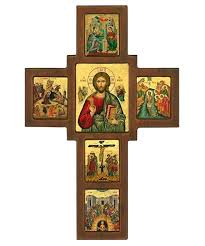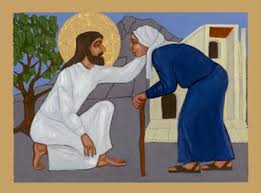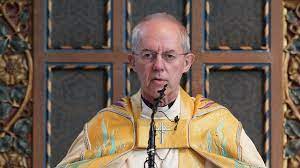Tonight (today) we celebrate that Christmas is about God choosing us. God chooses life for us. God chooses joy and peace for us. God chooses redemption and reconciliation for us, and God chooses us to be partners in the reconciliation of the whole world to God. God chooses to be born in us again on Christmas, to dwell in us and renew us, to make us vessels overflowing with God’s own grace, mercy, and love for the world.
As author Marianne Williamson once said, “Our deepest fear is not that we are inadequate. Our deepest fear is that we are powerful beyond measure. It is our light, not our darkness that most frightens us. We ask ourselves, 'Who am I to be brilliant, gorgeous, talented, fabulous?' Actually, who are you not to be? You are a child of God… We were born to make manifest the glory of God that is within us. It's not just in some of us; it's in everyone.” Source.
That is the real meaning of Christmas – the manifestation of the glorious love of God in the world. Sadly, so much distracts us from that and instead, we get caught up in public and moral outrage over whether or not to use the Greek letter chi (which looks like an X) when writing the word Christmas, or whether to say Merry Christmas or Happy Holidays. The shaming I see on social media about this is just nuts. And who remembers the Christmas coffee cup debacle a few years ago? The coffee company changed their cup to a solid color which led a pastor to accuse them of hating Jesus.Focusing on the wrong thing, like buying presents we can’t afford, or moralizing over how others get Christmas wrong, leads us to miss the overwhelming, life-changing, world-changing good news of Christmas – that the glorious love of God is being made manifest in the world.
If it helps, the same thing happened that first Christmas.
According to the Gospel writer, Joseph, who is descended from the house of David, must travel to Bethlehem to register in accordance with a decree from Caesar Augustus. Mary, who is engaged to Joseph, is pregnant and near delivery, so they travel together.
Ordinarily, travelers like Mary and Joseph would have stayed with family or friends who live in the area. But Mary and Joseph can find no place to stay. The Christmas story, which we know so well, says ‘there was no room for them at the inn.’
Mary and Joseph were only offered a rough, dirty place in the part of the house where the animals were kept. The baby would have been placed in a feeding trough to keep him from getting trampled by an animal.
Joy Carroll Wallis, author and priest in the Church of England, suggests that Joseph and Mary were being shunned…their family and friends morally outraged, because Joseph showed up on their doorstep with his pregnant girlfriend and everyone knew it wasn’t his baby.The Messiah was being born right under their noses, and they missed it because they were busy moralizing. They judged Joseph and Mary to be sinners whom they felt justified in rejecting and excluding, unaware that God had chosen them to be partners in the reconciliation of the world.
The judgment of God, who is the only real moral authority, is salvation in Jesus who is the Christ. By taking on flesh like ours, Jesus links heaven and earth, eternity and time, from ages past to this present moment reconciling us to himself and ensuring that everyone is included in God’s plan of salvation …the clean and the unclean, the Jew and Gentile, the saint and the sinner.
So many "religious" people would rather God offer grace only to those who deserve it. The truth is, none of us deserves it, and yet all of us receive it because that is the nature of the extravagant love of God.
A perfect example is the shepherds in the fields who were the first to hear of the birth of the Savior. In those days shepherds were seen as a group of dirty, low-class nobodies. Yet, God chose them to be the first to hear these tidings of great joy. God chose them to be the first to see the Christ-child. When the shepherds told about what they saw, the grace of God flowed through them so that all who heard them were amazed, and the shepherds themselves could do nothing but praise and glorify God.
Today, God chooses us. We are the believers described in the letter to Titus - people transformed by God’s love and, therefore, zealous for good deeds, remembering of course, that our good deeds are simply the manifestation of God’s grace moving through us into the world.
Tonight (today) we are reminded that Christmas is about God choosing us. God chooses to be born in us again, to dwell in us and renew us, to make us vessels overflowing with God’s own grace, mercy, and love for the world.
God chooses us because that is the nature of the extravagant love of God.Merry Christmas!
Amen.





































